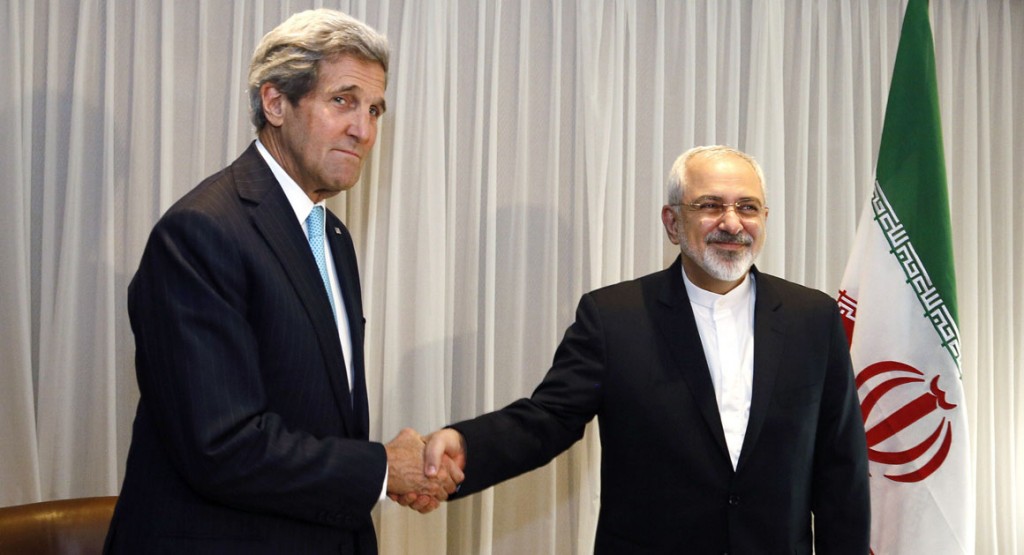21st Century Wire says…
This is international relations 101.
Iran managed to achieve what many thought would be impossible this week, by getting all sanctions lifted from the country and international recognition of their right to obtain and use nuclear power.

Deal! (Photo Credit: Getty)
It turns out that politically savvy Iranian leaders knew that the security-obsessed U.S. could only tolerate Uranium enrichment for so long, so they ramped up the pace to make things turn in their favour. Genius.
Many commentators have seen the Iran Deal as a truly historic moment, with potential to reshape Western relations with the Middle East.
Find the article below and follow us here: http://twitter.com/21WIRE
How a Weaker Iran Got The Hegemon To Lift Sanctions
Now that Iran nuclear deal is completed, the attention of western news media and political commentators is predictably focused overwhelmingly on the opposition to the agreement within the US Congress and from Israel and the Saudi-led Sunni Arab coalition.
That media lens misses the real significance of the Joint Comprehensive Plan of Action, which is that Iran succeeded in negotiating an agreement with the United States that upheld its national right to a nuclear programme despite the obvious vast disparity in power between the two states. That power disparity between the global hegemon and a militarily weak but politically influential regional “middle power” has shaped not just the negotiating strategies of the two sides during the negotiations but, more importantly, how they came about in the first place.
The news media have adopted the Obama administration’s view that negotiations were the result of Iran responding to international sanctions. The problem with that conventional view is not that Iran wasn’t eager to get the sanctions removed, but that it was motivated to do so long before the United States was willing to negotiate.
In fact, Iran had long viewed its nuclear programme not only in terms of energy and scientific advancement but also as a way of inducing the United States to negotiate an end to the extraordinary legal status in which Iran has been placed for so long. Even during the Bill Clinton administration Iranian strategists wanted to get the United States to move toward more normal relations, but Clinton was determined to be the most pro-Israeli administration in US history, and instead imposed a complete trade embargo on Iran.
Clinton eventually offered a “dialogue” with Iran but made it clear that he had no intention of giving up the sanctions against Iran. The lesson that Iranian strategists, including then secretary of the Supreme National Security Council and now President Hassan Rouhani, learned from the Clinton years was that the United States would only negotiate the end of its sanctions against Iran if was convinced that the cost and risk of refusing to negotiate was too high.
It was during the second Clinton administration that Iranian strategists began to discuss the idea that Iran’s nuclear programme was its main hope for engaging the hegemonic power.
Iranian political scientist Jalil Roshandel, who worked on a research project for the Iranian Foreign Ministry’s think tank in 1997-1998, recalled in an interview with this writer that influential figures (including an adviser to veteran Iranian foreign minister Ali Akbar Velayati) had told him during that period that they believed a uranium enrichment programme would provide leverage in negotiating a removal of the sanctions…
READ MORE ON THE IRAN DEAL: 21st Century Wire Iran Files















